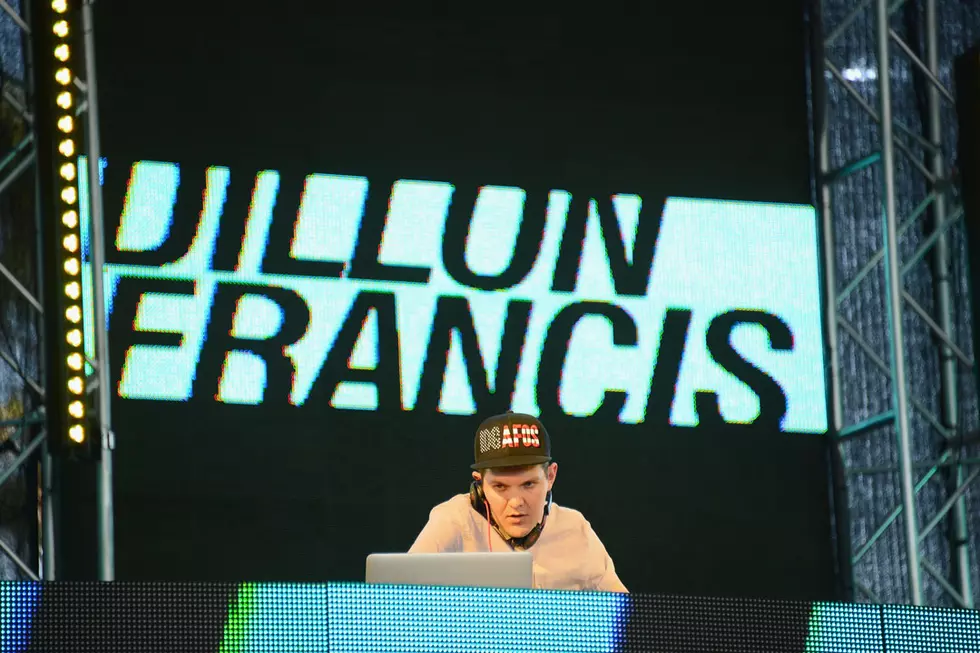
The American Obsession With Skrillex
In 2004, he first emerged in Los Angeles as Sonny Moore, a 16-year-old lead singer for a B-list “scene” band called From First to Last. The group recorded for Epitaph Records, played the Warped Tour, and opened for Fall Out Boy, performing for an audience of mess-headed fans donned in black and pink. But their success would only go thus far.
It wasn’t until Moore started to experience vocal-cord problems that he turned to electronic dance music and start the first chapter of his legacy. Clad in black and going by the name Skrillex, Moore now experiences great success with his new occupation. A month ago, he was nominated for five Grammys, including the one for Best New Artist. When Facebook counted the most-played pieces of music on the site in 2011, two of the top 10 were by Skrillex. And then there was the music video for his hit single “First of the Year (Equinox), which appeared on Beavis and Butthead.
Now with a new EP, Bangarang, his notoriety has become even greater. So what is America’s obsession with Skrillex?
Skrillex work, you can say, is “a pile-up, as if someone’s picked all the most obviously, superficially cool and high-impact parts of a dozen different genres, dredged them in stimulants, and started mashing them against one another.”
Taking direction mainly from the dubstep category, Skrillex’s beats have become the perfect answer to the American hetero male’s reservations about electronic dance music – which in the past was written off as silly, trashy and effeminate. The gnarly, monumental, distorted sound that tears through the middle of the frequency spectrum gives his music the edge to allow the listener to feel assured that their masculinity is still intact.
Skrillex thus admits creating a new category in the electro dance genre: “brostep.” The category includes scary visions of amped-up frat-boys stomping around to his work – even if the actual audience is as diverse as any. “Brostep is sort of my fault,” he told BBC, “but now I’m starting to hate it.” It was the dubstep DJ’s belief that Americans were taking the genre too far, draining the music of richness and subtlety.
Though Skrillex may be feeling some remorse only Dr. Frankenstein may be able to understand, he can’t argue with the sold-out venues one sees at each of his shows across the nation. As far as we’re concerned, American’s are more than happy to go deeper into the weird worlds he continues to create.
To read the full article, go to NY Mag.
More From Elektro Daily









